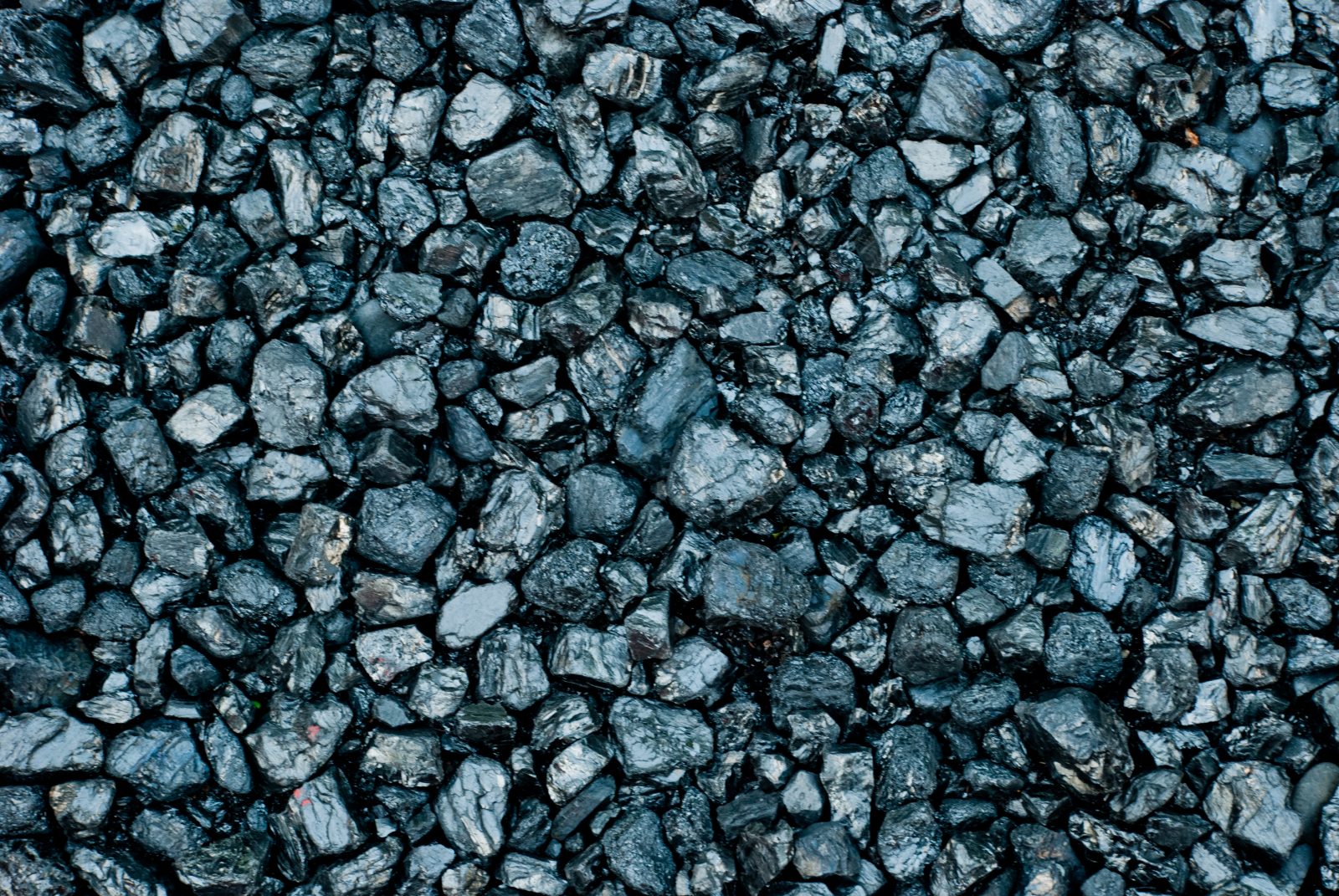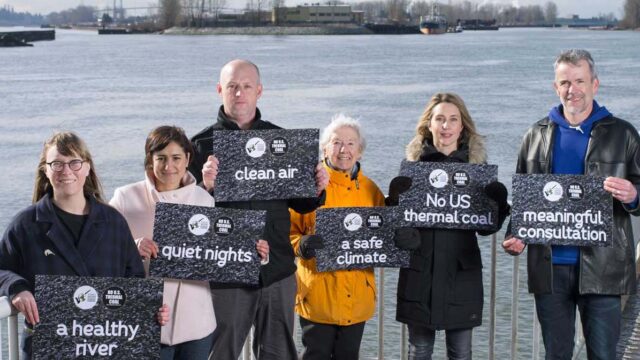For the past three years we have worked with Voters Taking Action on Climate Change, Communities and Coal, and two local residents to challenge the Vancouver Fraser Port Authority’s approval of the Fraser Surrey Docks coal export facility — a project that comes with unacceptable climate risks.
And this week, we’re finally in court.
Below we answer your most frequently asked questions about this case.
Is coal really that bad?
Coal is one of the dirtiest fossil fuels on the planet. It pollutes the air we breathe and accelerates climate change, putting human health and the environment at risk. But that’s not all we’re worried about.
Burning coal accounts for 44 per cent of global carbon emissions. With numbers this high, coal-power is deemed by many to be a major threat to our already fragile climate. In 2015, a scientific journal study in Nature made clear that if we are determined to tackle climate change, we need to get serious about stopping coal.
What is the Fraser Surrey Docks project?
With doors firmly shut on coal export facilities in Washington State and Oregon, the need to find an export route along the west coast is prompting American companies to look north for ways to get their product to foreign markets. That’s where the Fraser Surrey Docks coal project comes in.
If approved, the Fraser Surrey Docks project would see up to four million tonnes of thermal coal carried by open-car rail from Wyoming’s Powder River Basin through Vancouver’s Lower Mainland each year, ultimately bound for export to foreign markets. This project could pump nearly seven million tonnes of CO2 emissions into the atmosphere each year — at a time when scientific studies have shown we must do all we can to reduce carbon emissions.
Why did we take on this case?
We cannot let local communities become conduits for American thermal coal. It’s communities like our clients’ that will be burdened by the immediate health risks of increased coal transport, like the effects of coal dust coming off the top of the open rail cars.
Serious health effects flowing from exposure to coal dust include respiratory illness such as emphysema and chronic bronchitis. Grave health effects are also associated with the transport of coal itself. Diesel particulate matter emitted by trains carrying the coal is associated with pulmonary inflammation, increased asthma attacks, heart attacks and cancer risk.
Despite all of the risks that local communities will face from the Fraser Surrey Docks project, their health and safety concerns have never gotten a fair hearing from the Port. Our clients have been there through each step of the review process and make two arguments: The Port did not have the legal authority to issue the project’s permit approval and the conduct of the Port and its officers gave rise to a reasonable apprehension of bias.
We took on this case to ensure that federally-appointed authorities, like the Port, are held accountable for the decisions they make and uphold their duty to consider projects fairly and without bias.
Who else is standing up against coal?
After three years of legal wrangling, we can say that getting this case to a Federal Court hearing has not been easy — we successfully fought off a barrage of tactics that have delayed the hearing, including an attempt to strike the case. But thankfully, we’ve had some allies in our corner.
In 2015, the cities of Surrey and New Westminster successfully applied to intervene in support of our clients in this case. This means that they’ll appear before the Federal Court to make submissions in support of our legal argument that the Port lacked the legal authority to issue a permit approval for the Fraser Surrey Docks coal project. It is heartening to know that local governments are committed to making sure that industrial projects truly meet the needs of the communities in which they operate.
And, just weeks before we were set to appear in court, the government of British Columbia sent Prime Minister Justin Trudeau a letter demanding the federal government ban thermal coal exports from B.C. ports — recognizing that the supposed benefits of exporting thermal coal are not worth the toll it will take on the climate or our communities.
What do we hope this case will accomplish?
A win in this case would quash the Vancouver Fraser Port Authority’s permit for the Fraser Surrey Docks coal project. And that’s not all.
Successfully striking down the permit could have implications for Port transparency and accountability. If the court agrees that the Port unlawfully approved the Fraser Surrey Docks coal project, then it will signal that the Port must be accountable to the communities in which it operates and that bias will not be tolerated from federally-appointed authorities.
How can I support this case?
Each legal fight we take on requires us to put in hundreds — and in this case, thousands — of hours of work and organizational resources to secure the best possible outcome for the environment and our communities. The support of people like you ensures that we have the resources we need to sustain our efforts for as long as it takes to see things through.
Ecojustice’s work helping local residents, Communities and Coal, and Voters Taking Action on Climate Change get their day in court are a prime example of the dedication required to simply secure a hearing. You can support us by giving a gift today or sharing information about this case with your family and friends.



